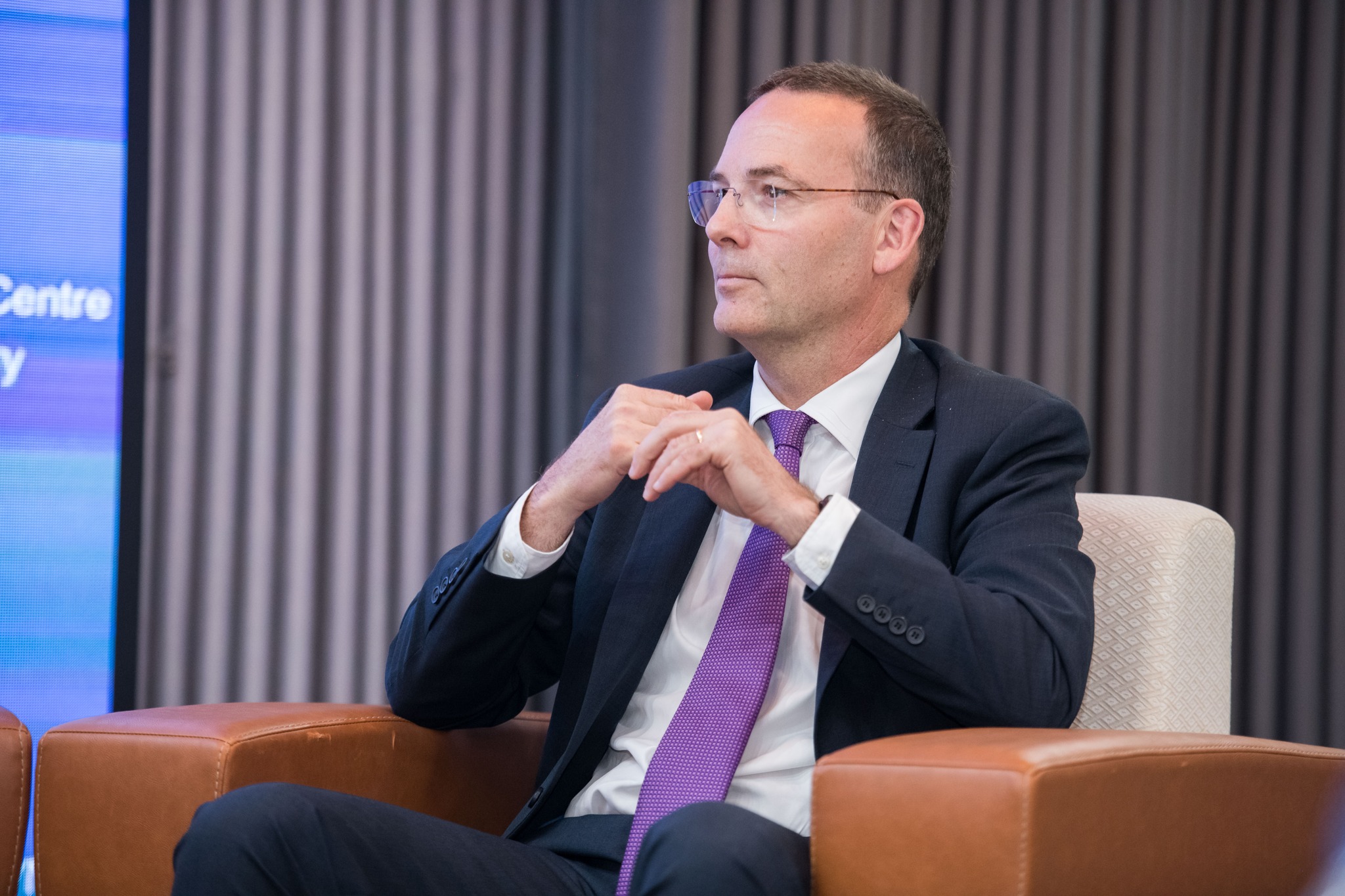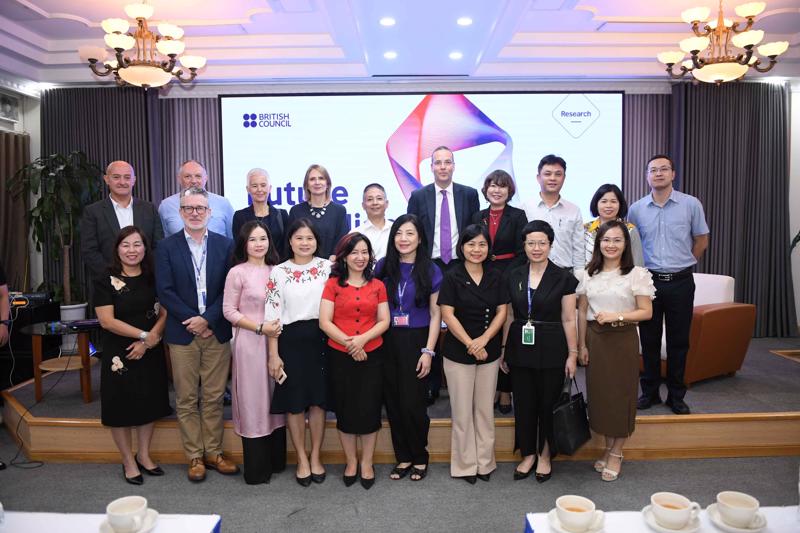On June 13, the British Council in Vietnam and the University of Languages and International Studies (VNU-ULIS) co-hosted a panel discussion in Hanoi with Mr. Scott McDonald, Chief Executive of the British Council, senior representatives from the Ministry of Education and Training, and approximately 250 lecturers, teachers, and students from more than 40 universities and institutions to discuss key findings from the “Future of English: Global Perspectives” report published by the British Council.
According to the report, English will retain its position as the world’s most widely-spoken language over the next decade and teachers will continue to be at the heart of English learning, even in the face of increased automation, AI, and machine learning.
The roundtable aimed to raise awareness among an audience of Vietnamese students, teachers, educators, and academic stakeholders about the recently-published report and explore its impact on Vietnam; to educate academic stakeholders on the latest developments in English language research and its implications for teaching, learning, and assessment; and to generate interest and discussion around the topic among a wider audience, including academic, linguistic, and teaching professionals.
Speaking at the opening, Ms. Donna McGowan, Director of the British Council in Vietnam, noted that the event is being held within the framework of a UK season of culture this year, which includes a whole range of activities and events across the English language, education, arts, and culture for the next six months, to mark the 50th anniversary of Vietnam - UK diplomatic ties.

Mr. McDonald emphasized that there are more than 75,000 primary and secondary school English-language teachers and about 80 million students in Vietnam. In higher education, there are more than 200 universities with 2 million students. Of students learning foreign languages in Vietnam, 99 per cent are learning English.
“That’s good for the British Council,” he said. “For 90 years, a key part of our mission worldwide has been to widen our knowledge of the English language. And doing so gives people the skills they need to access global opportunities, global employment, and global connections with others. And for the last 30 of those years, we’ve operated in Vietnam and in close partnership with many organizations here.”
“We look forward to hearing what panelists have to say during today’s panel, to bring a truly international perspective on this subject,” he added.
Panel members discussed and answered questions on how English will remain the most widely-spoken foreign language in Vietnam in the future, how technology can narrow the equity gap in English language education, how English assessment can meet stakeholders’ changing language needs, and global employment opportunities for English learners.









 Google translate
Google translate